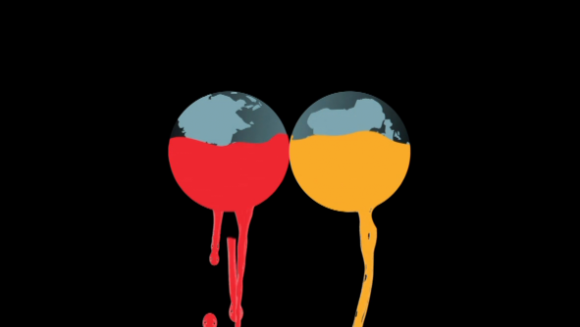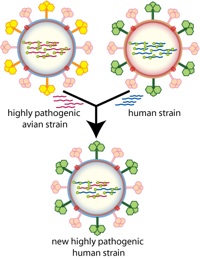

Below is a list of addresses that were handed out on a sheet of paper at the Whitney Biennial 2012's Surveillance Teach-In, and described as "possible domestic NSA interception points".
Friday night was standing room only at the Whitney Biennial 2012's Surveillance Teach-In of Academy Award nominated filmmaker, Laura Poitras.
Her body of work includes: "My Country, My Country", about the U.S. invasion of Iraq; "The Oath", about two Yemeni men caught up in America’s "War on Terror"; and her current work in progress detailing the U.S. surveillance state in post 9/11 America.
Woven through the museum were interactive installations by Stimulate, and two mysterious portraits of of Julian Assange, the editor of WikiLeaks, who has been under house-arrest in Great Britian for 501 days without charge.


"If a tree falls in a forest and no one is around to hear it, does it make a sound?" This familiar philosophical question came to my mind in response to a friend's challenge of my support for WikiLeaks and call for investigation into the recent shooting of a black teen in Florida. She said, "How do you know what the truth is? How do you know that George Zimmerman didn't act in self-defense? How do you know that Julian Assange didn't sexually assault women in Scandinavia? ... Unless you get on an airplane, go the scene of the action, and see for yourself, you can't be absolutely certain. You can check and crosscheck multiple different sources and you can draw reasonable inferences, but you still have to inject a certain amount of faith unless you conduct your own personal investigation".
It is true. We were not there at the moment of Trayvon Martin's death. Someone pulled the trigger and as a result the young man was dead. At the moment of his death, the neighbor's 911 call recorded someone crying for help. Someone was being threatened. Was it Zimmerman or Martin? We don't know if this was a murder or an act of self defense by Zimmerman. When the tree fell down, we were not in the woods to hear it.
Later I contemplated my friend's perspective and realized how it represents a psychological condition prevalent in American society. It is a kind of social disease, which perhaps explains the public silence around many problems in the world. This is a kind of belief system that says; I wasn't there. I don't know the truth, so I withhold judgment and remain aloof.
Julian Assange has now been detained for 500 days without charge. This includes the 10 days he spent in solitary confinement on top of the 490 days he's spent electronically tagged under house arrest. After all this time the media is still spreading the same falsities about his case and people continue to attack him with the same misconceptions as they were a year and a half ago.


The long awaited television series 'The World Tomorrow' hosted by Julian Assange will begin airing worldwide this coming Tuesday 17 April at 15:30 Moscow time on both cable TV and online. The news has been meet with considerable speculation as to who Assange's mystery guests will be and has also been met with the now familiar 'Kremlin mouthpiece' dismissal from the mainstream media.


WikiLeaks News (Releases):

WikiLeaks News:
Authored by @Nicsha
 If you spend five minutes watching commercial television or flicking through a mainstream magazine, you would think spending money is not only our birthright, but a move that is encouraged and welcomed.
If you spend five minutes watching commercial television or flicking through a mainstream magazine, you would think spending money is not only our birthright, but a move that is encouraged and welcomed.
We can buy almost anything from anywhere. We have the freedom to invest, bank online, and support innumerable charities and organisations across the globe; whether it's helping to protect animals, join the fight against cancer, advocate human rights or even speaking out to save a lake.
Unless of course, you are WikiLeaks.
Most people probably know that from the 7th of December 2010 (just after WikiLeaks began publishing the US diplomatic cables), MasterCard, Visa, Bank of America, PayPal and Western Union decided to stop their customers from making donations to WikiLeaks.
No longer contented with their own business, the major banks have launched a covert mission to invade ours by means of a financial blockade that prevents us from using their products towards causes we support.
What right does a company or foreign Government have to tell me, an Australian citizen, about how to spend my money? And, on what criteria do the bank and credit card companies determine who will be blockaded?
While many may have thought the financial blockade would only last a few weeks,almost eighteen months have passed and donations to WikiLeaks have dropped by 95 per cent, according to their estimates. In July 2011, WikiLeaks lodged a complaint with the European Commission for infringement of the EU Anti Trust Laws. We are still waiting for their decision.
After a public forum on WikiLeaks, Australian Greens Senator Scott Ludlam made the following comment:
The Australian Government has done the absolute bare minimum above stuff-all to help this Australian citizen in trouble. […] They've attempted to block and delay Freedom of Information requests, they haven't answered straight questions, they've voted against motions, and to me it's starting to look not like indifference but like hostility.
This hostility from the Australian Government is becoming more and more apparent, especially as Julian Assange awaits the UK Supreme Court's decision on whether he'll be extradited to Sweden. Not only is the Government offering little support to its citizen, but it is making derogatory and false remarks against the WikiLeaks organization, refusing to offer timely release of relevant information, and passing new laws which make it difficult for WikiLeaks to continue operating legally and raise safety concerns for its founder.

WikiLeaks News:
In an interview published this week in Law.Com, general counsel for the Washington DC based nonprofit Center for Democracy & Technology, David Sohn, discusses the protests against SOPA and PIPA, including the January 18 internet blackout action. In general, he disparages the methods proposed in the bills for shutting down sites that are alleged to be copyright infringers, claiming concern over the likelihood that ISPs put into policing roles will take a more risk averse approach in shutting down sites, resulting in a curtailment of freedom of expression. However when he is asked how he would balance the right to free speech on the Internet with the need to curtail online IP theft, his response is:
The portions of the bills that worked were those that took a follow-the-money approach by cutting off the funding support for rogue websites. WikiLeaks provides an instructive example. All of the efforts to make it disappear didn't work, but what did work was the financial blockade that made it impossible for WikiLeaks to fund the bandwidth it needed to run.
Putting aside his misguided claim that WikiLeaks actually ceased operating after the financial blockade was imposed on them in December 2010, his comments do in other ways properly reflect the grim reality. What Sohn is referring to here are the provisions in SOPA / PIPA that prohibit any site accused of piracy from doing business with other services, such as PayPal or any advertising platform. Almost precisely what was done to WikiLeaks having their relationships cut off not only with PayPal, but also with Visa, MasterCard, Bank of America and Western Union - resulting in the loss of 95% of their income from donations - their only income - for the last 15 months.

WikiLeaks News:
This is a list of all rallies scheduled after Julian Assange receives the verdict on his Supreme Court appeal against extradition to Sweden. These rallies are taking place regardless of the outcome.
 My general theory since 1971 has been that the Word is literally a virus, and that it has not been recognized as such because it has achieved a state of relatively stable symbiosis with its human host ... the Word clearly bears the single identifying feature of virus: it is an organism with no internal function other than to replicate itself.
My general theory since 1971 has been that the Word is literally a virus, and that it has not been recognized as such because it has achieved a state of relatively stable symbiosis with its human host ... the Word clearly bears the single identifying feature of virus: it is an organism with no internal function other than to replicate itself.
- William Seward Burroughs, The Adding Machine
Anyone who has ever played the child's game of "Telephone" -- also called "Chinese Whispers" -- knows how readily the "grapevine" breeds distortion, as mistakes and deliberate misstatements can take on lives of their own. Often the mainstream news media acts as an adult version of this exercise in group error. In the system of mass news dissemination via major syndication agencies like Reuters and the Associated Press (AP), inaccuracies eventually become accepted "fact," and mistake morphs into meme and myth. A sole news service like AP is like "Telephone" on steroids, as it can easily distribute a single falsehood to more than 15,000 subscribers who then accept it as fact. Herein danger lies; for, in these days of trial by media, one person's fate and freedom may depend on a question as to which myth has more traction.

WikiLeaks News:
Theme by Danetsoft and Danang Probo Sayekti inspired by Maksimer